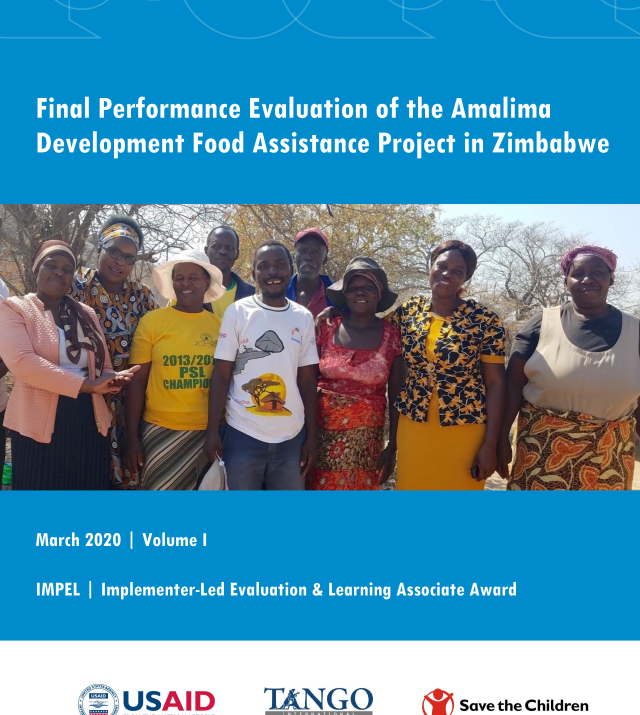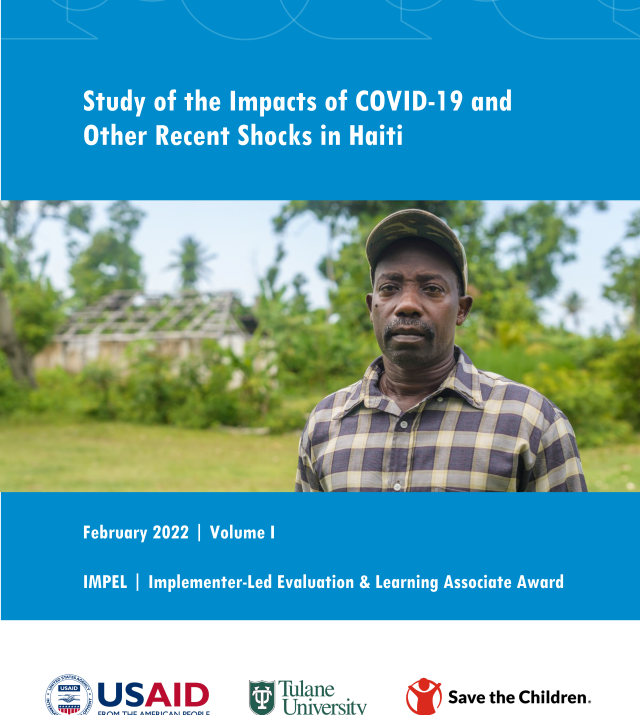Performance Evaluation: Kore Lavi Development Food Assistance Project in Haiti

Overview
These materials present findings from the Final Qualitative Performance Evaluation of the Kore Lavi Development Food Assistance Project (DFAP) in Haiti. Funded by USAID's Office of Food for Peace (FFP), the six-year Kore Lavi DFAP worked to support the Haitian Government in creating a social safety net for food and nutrition security in 23 communes of Haiti. The Kore Lavi project, led by CARE, directly supported the Government of Haiti’s social protection efforts through the Ministry of Social Affairs and Labor (MAST) in partnership with the World Food Programme, World Vision, Action Against Hunger.
In early 2020, the Kore Lavi Strategic Objective 2 (SO2) impact evaluation was discontinued due to the COVID-19 pandemic and heightened insecurity. However, the USAID Bureau for Humanitarian Assistance seized this unique opportunity to conduct a mixed-methods study in three Kore Lavi communes in the Northwest Department and upper Artibonite Department (Bombardopolis, Mole Saint Nicolas, and Anse Rouge) where data was collected prior to the start of the pandemic. This study builds on the first round of data collected from 276 households surveyed in January of 2020 by conducting a second round of data collection with the same households in January and February 2021, with the addition of questions related to COVID-19, shocks, and resilience.
Study of the Impacts of COVID-19 and Other Recent Shocks in Haiti
The study looks at the impacts of recent shocks (COVID-19, climatic, social-political) on poor households, and the capacities and strategies these households have used to mitigate these events. It has identified several findings of particular importance to understanding the current food/nutrition security and poverty situation of poor households in the study areas.
Final Qualitative Performance Evaluation
The objective of this qualitative evaluation is to assess the development outcomes of the Kore Lavi project and its implications for sustainability. The evaluation was guided by five main evaluation questions, each with specific sub-questions, as well as queries related to gender integration and other cross-cutting and interests.
Final Qualitative Performance Evaluation Brief
Prepared by Tulane University School of Public Health and Tropical Medicine, this brief summarizes the results of the final qualitative performance evaluation, which assesses the development outcomes of the Kore Lavi project and implications for sustainability.
Final Qualitative Performance Evaluation Presentation
IMPEL and FFP presented the final qualitative performance evaluation for the Kore Lavi DFAP where participants heard about findings and were given an opportunity to ask questions.

